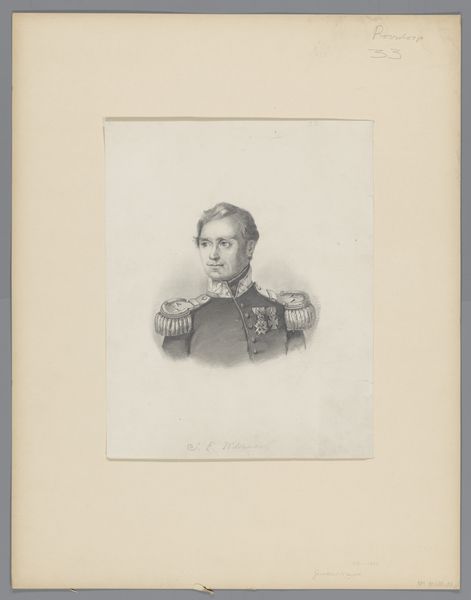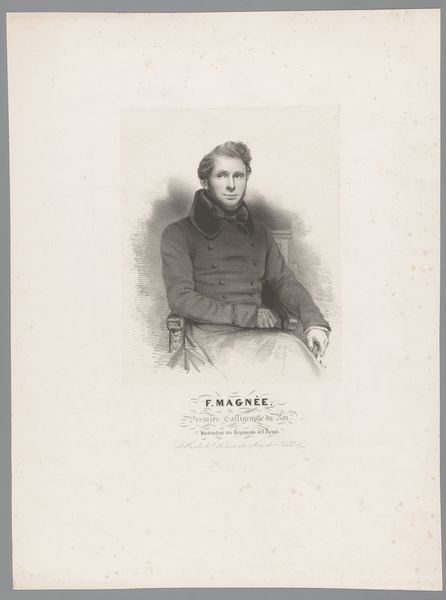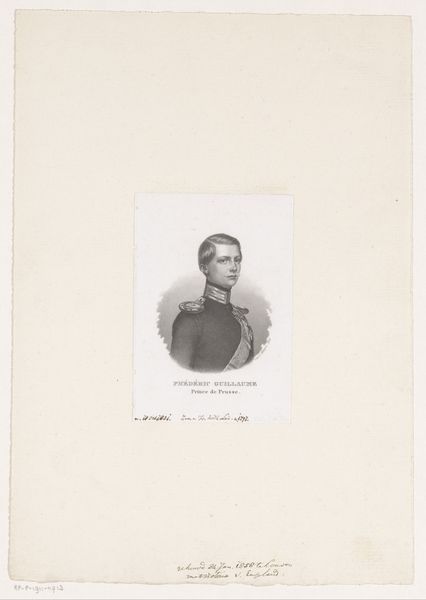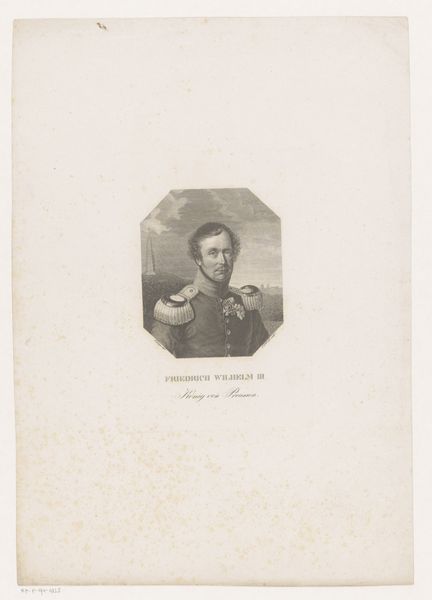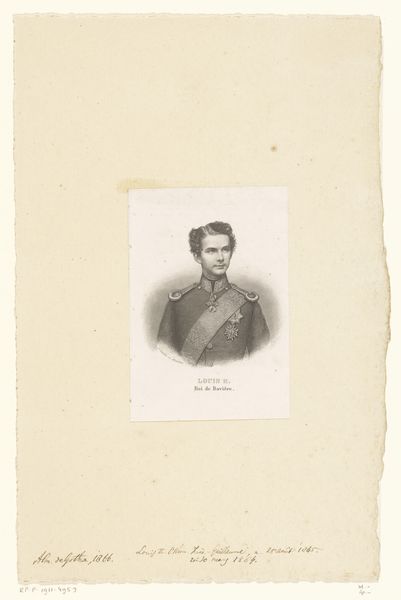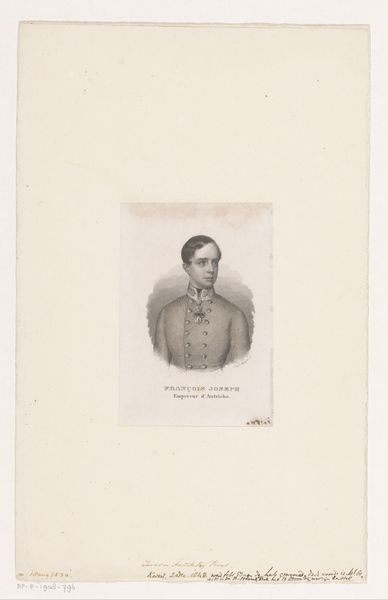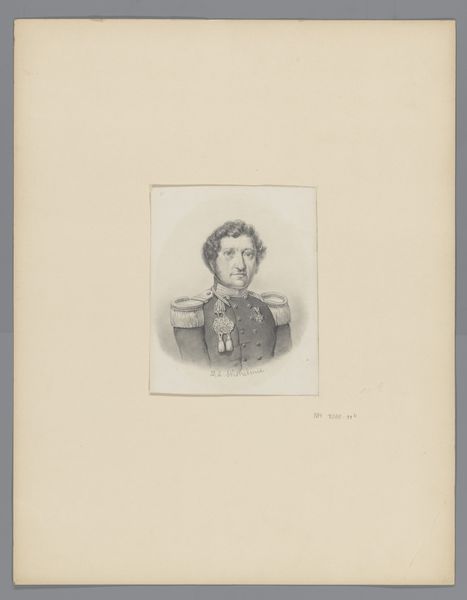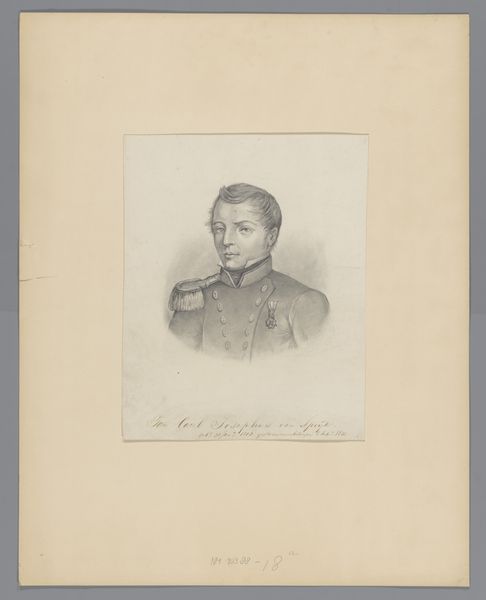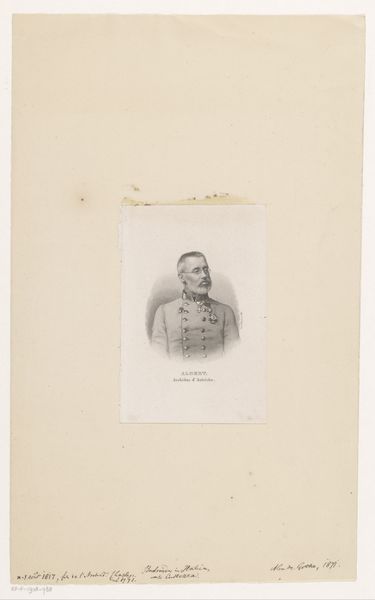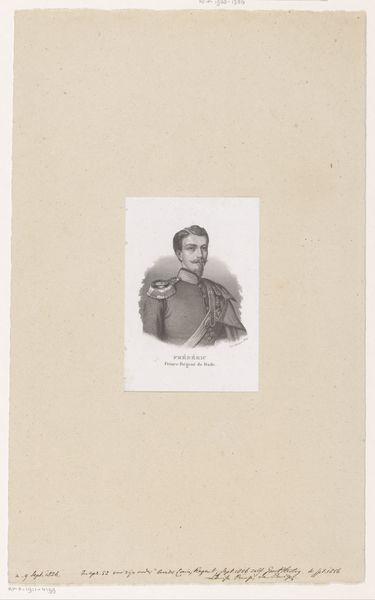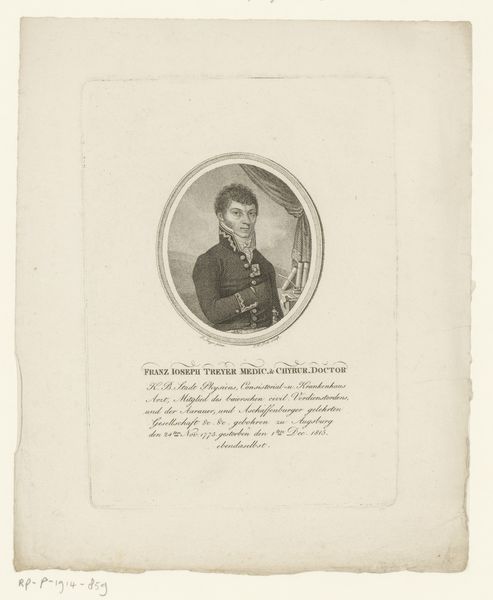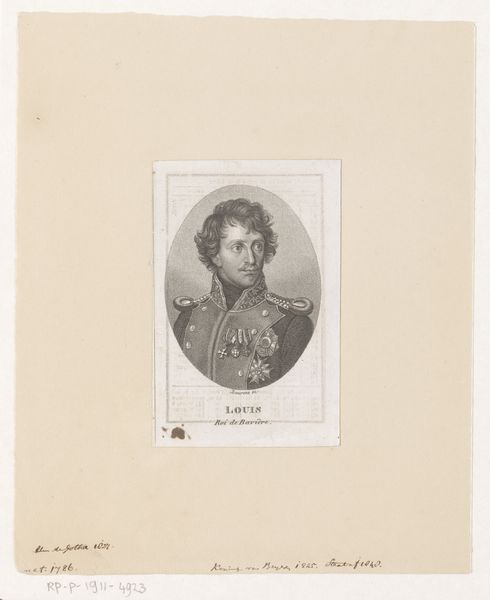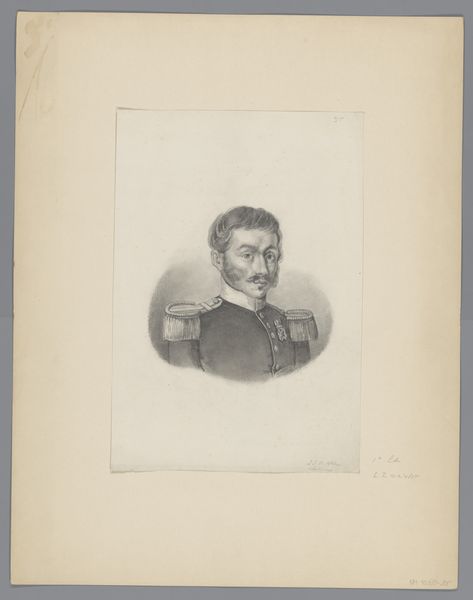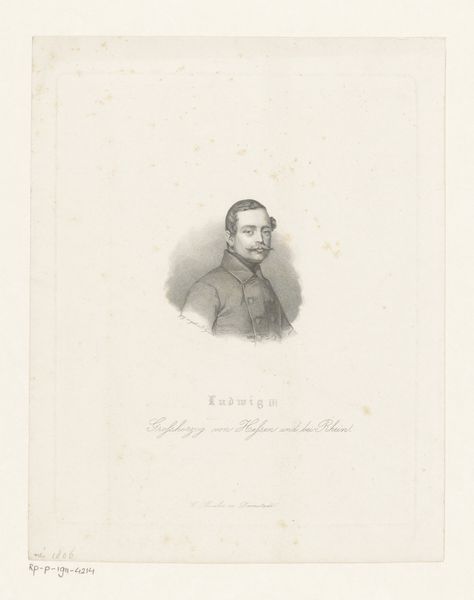
#
photo of handprinted image
#
aged paper
#
homemade paper
#
pale palette
#
ink paper printed
#
light coloured
#
white palette
#
personal sketchbook
#
watercolour illustration
#
watercolor
Dimensions: height 333 mm, width 274 mm
Copyright: Rijks Museum: Open Domain
Curator: Right, let’s dive in. What we have here is a portrait of Coenraad van Valkenburg. It’s believed to be from somewhere between 1831 and 1860. Editor: It's giving me a pensive mood. Almost melancholy. He has these very direct eyes, yet there's something weary in his expression, wouldn't you say? Curator: Absolutely, there’s a definite weight there. And it's intriguing, because it’s a hand-printed image, perhaps even a personal sketchbook piece. Look at the light-coloured paper, the aged quality. The pale palette only adds to that sense of introspection, I think. Editor: Yes, that handcrafted element brings a real intimacy. And considering it portrays someone in uniform, presumably an officer, that melancholic gaze hints at complex layers of identity, perhaps the tension between public duty and private emotion. The portrait captures a sense of both power and vulnerability, particularly during a time rife with colonial tensions. I wonder how van Valkenburg saw himself within the Dutch colonial machine. Curator: That's it exactly! There’s an undeniable sensitivity here. It feels more like a personal reflection than a formal depiction. Editor: Do you get a sense of…restraint? It's like he's holding back, observing more than participating. That guarded nature might hint at broader power dynamics at play. Curator: Yes, precisely! And from an artistic point, it reminds us that even formal portraits can reveal the artist’s, and the sitter’s, internal world. Editor: It's these untold stories within historical artworks that always grab my attention, imagining the world behind those eyes. This could spark important dialogues, especially about coloniality and self-representation. Curator: It certainly gives us food for thought, about the individual within history, and how art holds up a mirror – however clouded – to both.
Comments
No comments
Be the first to comment and join the conversation on the ultimate creative platform.
